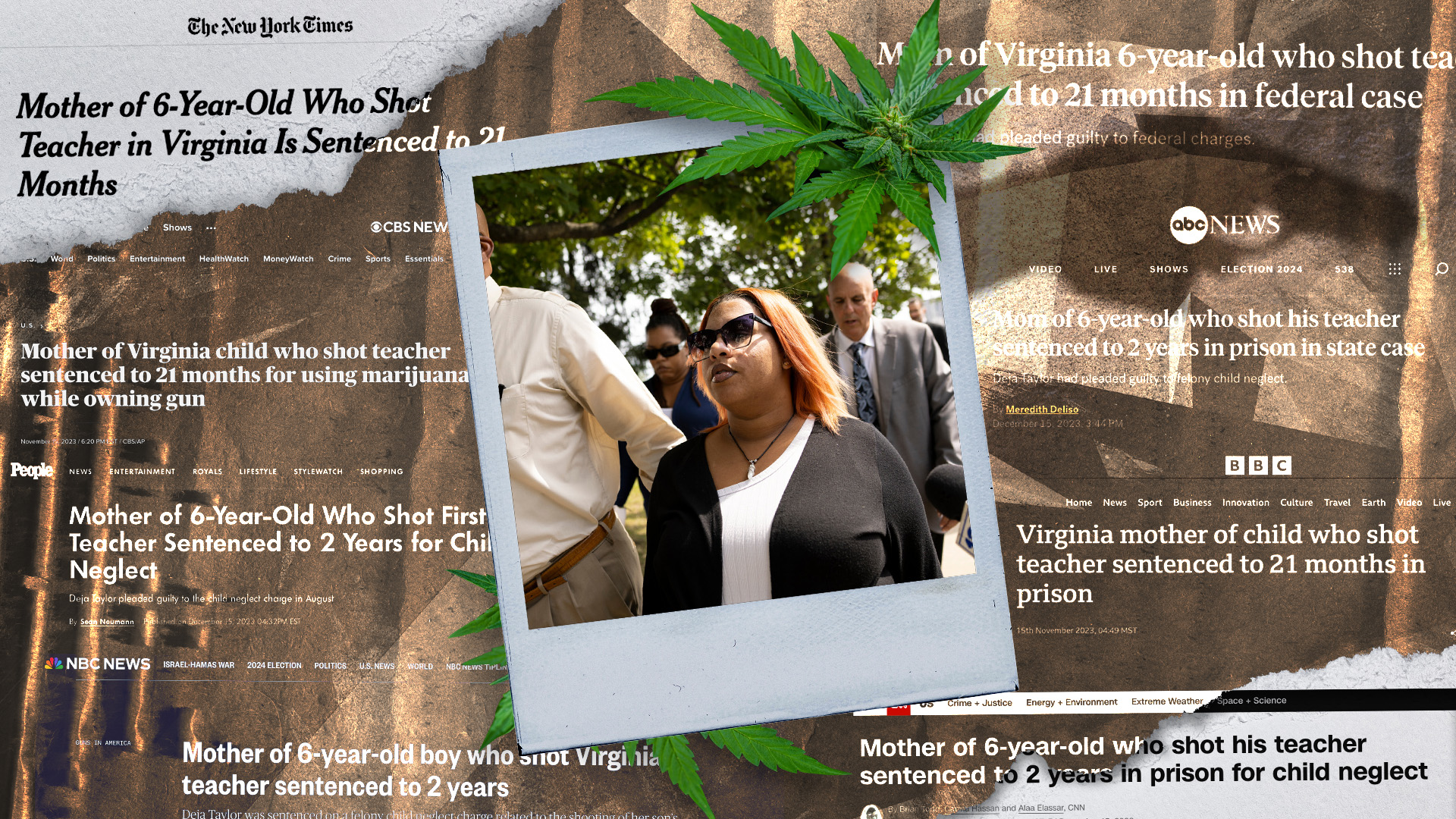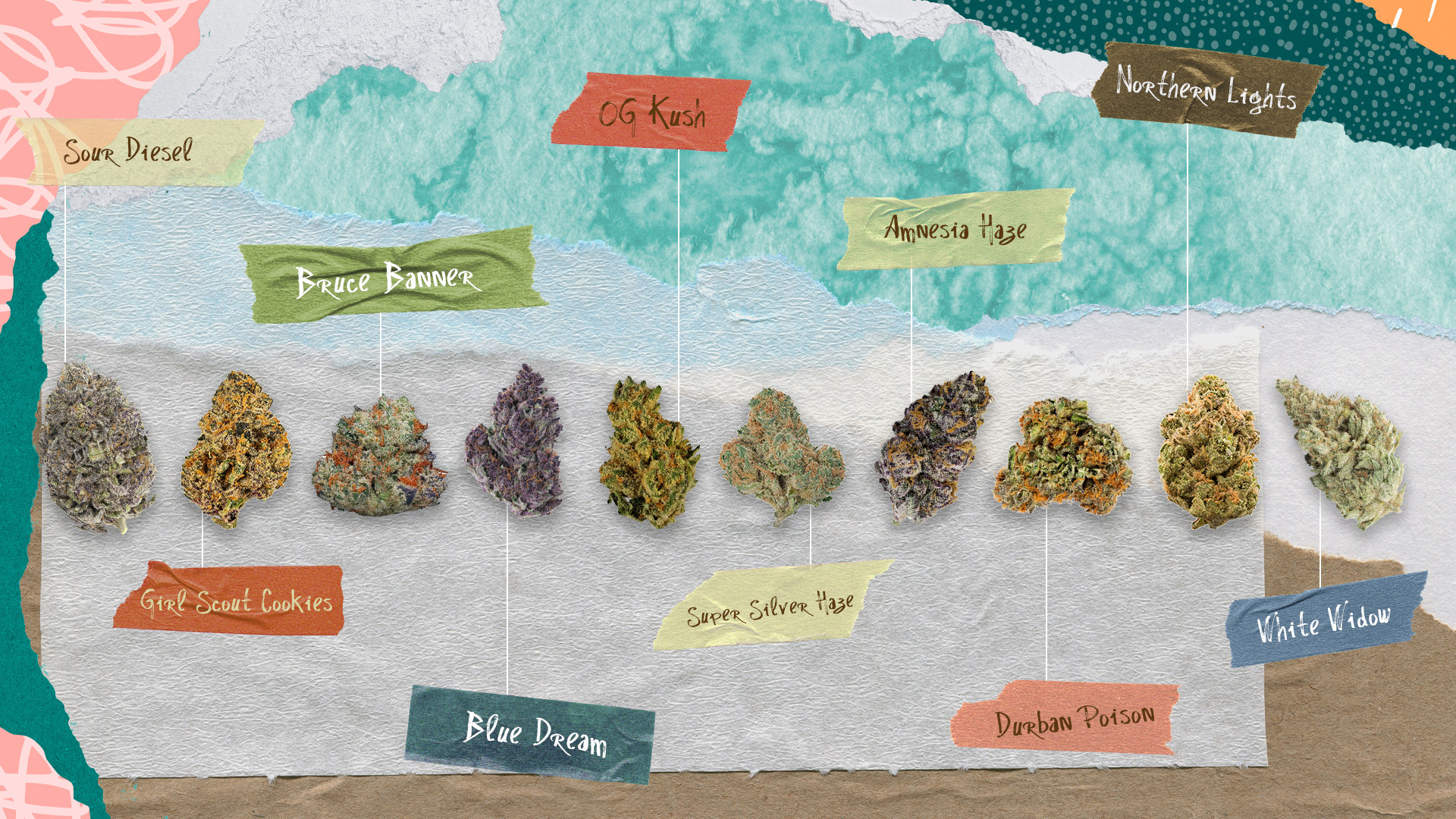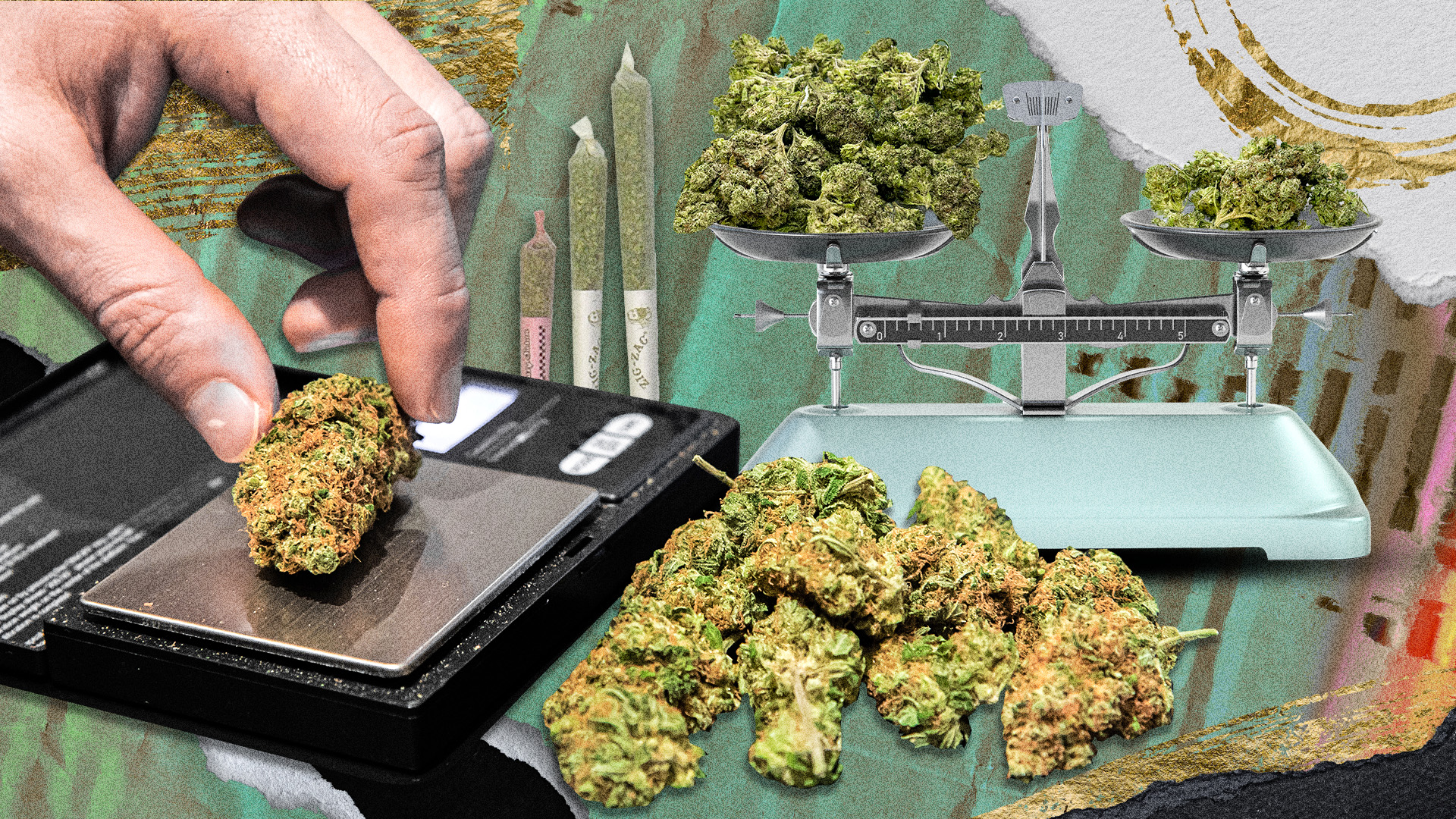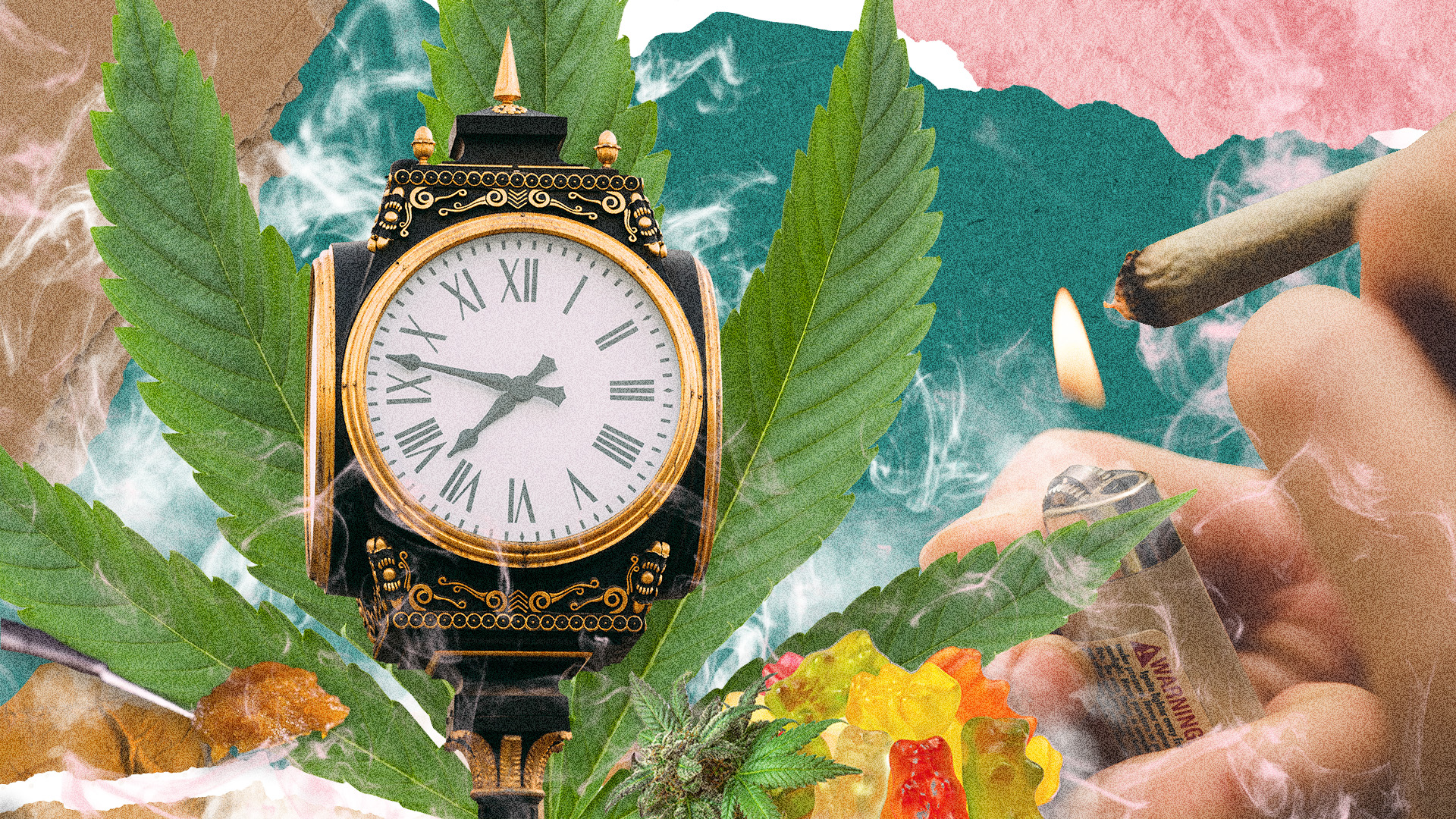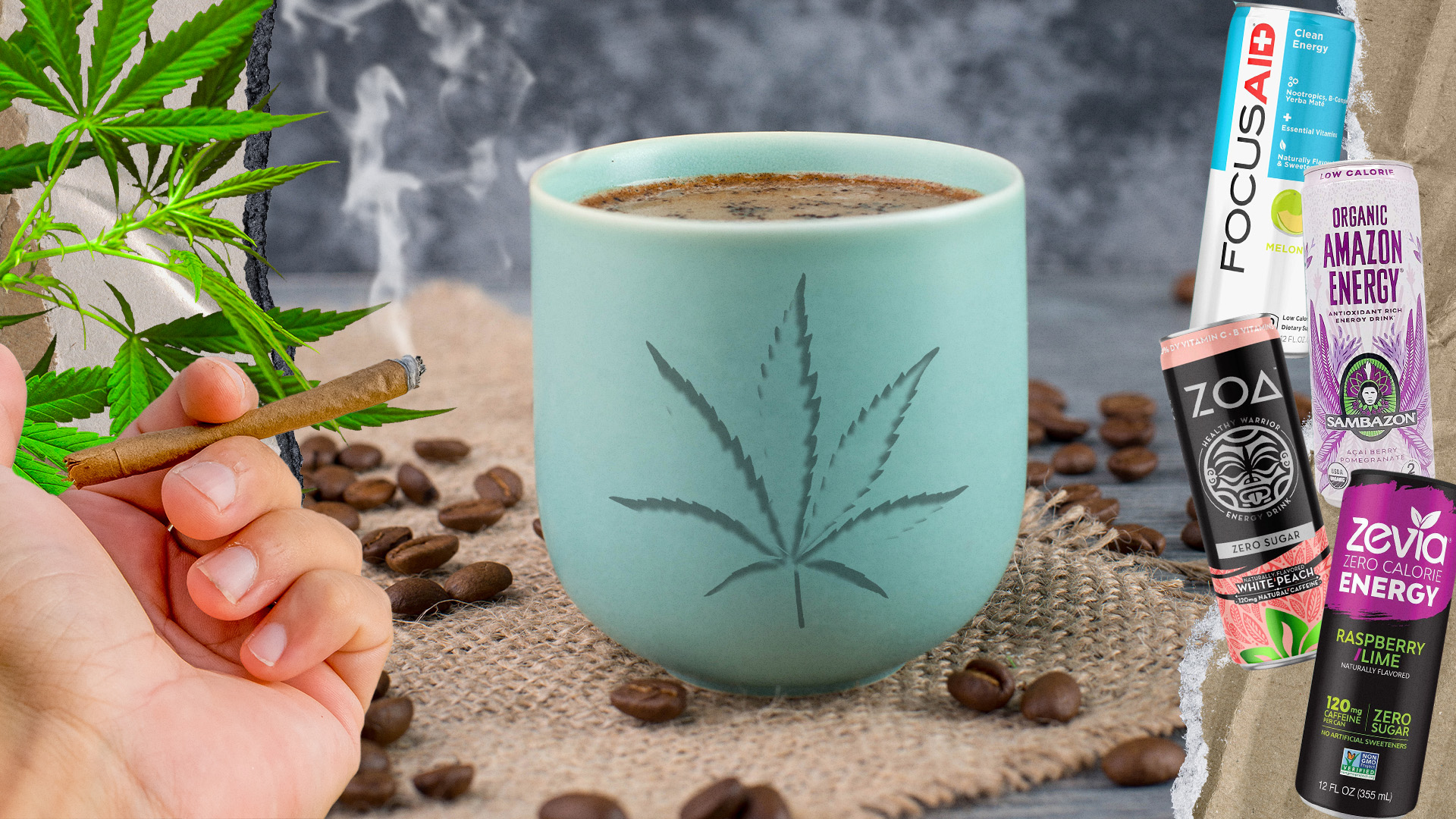In November 2023, a shocking story broke and ignited a nationwide discussion. Deja Taylor, a Virginia mom, instantly caught people’s attention across the web.
Taylor’s young son, in a tragic turn of events, brought a handgun to his school and brutally shot his first-grade teacher, Abby Zwerner. This devastating incident started a conversation about gun safety and child welfare that spread like wildfire.
But it didn’t stop there.
Buried within the layers of this complex tale were legal questions that revealed the intersection of firearm ownership, state-legal cannabis use, and individual rights.
Deja Taylor was sentenced to 21 months in prison for using cannabis while owning a firearm, which is illegal under U.S. federal law.
Taylor’s sentencing shed light on the complex legal process and raised critical questions about the broader values of society.
Background of the Deja Taylor Case
The events that unfolded on that fateful day at the school were nothing short of harrowing. Deja Taylor’s son, who was just six years old, managed to access his mother’s unsecured firearm. In a moment that would forever alter many lives, he shot his teacher, Abby Zwerner, in her classroom.
This shocking act raised immediate concerns about the safety protocols in schools. It also thrust the issue of gun access by children into the national conversation.
However, as investigators dug deeper, they made an additional discovery in Taylor’s home. Alongside the firearm, they found drug paraphernalia and nearly an ounce of cannabis. Even though this find may seem unrelated to the shooting, it played a crucial role in her sentencing, as gun ownership is still federally illegal for medical cannabis cardholders.
The use of cannabis in Taylor’s residence, despite its legal standing in Virginia, became a major factor due to the contradicting federal laws regarding gun ownership. This aspect of the case highlights the contradictions between state and federal regulations.
These contradictions are particularly evident when it comes to gun rights in states that have legalized and decriminalized the cannabis plant. In addition, the complexities of her case did not end there. Taylor also awaits further legal proceedings at the state level, where she is charged with felony child neglect.
Why You Should Get Your Medical Marijuana Card
Veriheal has satisfied millions of patients nationwide by giving them access to these benefits
- Larger purchase limits
- Peace of mind
- Enhanced legal protection
- Access to higher potency strains
- Save up to 25% on cannabis purchases
- Skip the line at the dispensary
Compounding the situation is the $40 million lawsuit filed by Abby Zwerner against the school system for failing to ensure a safe employment and educational environment.
The National Debate and Legal Context
Taylor’s case demonstrates the extreme discrepancies between state and federal laws regarding cannabis use. While states like Virginia have legalized cannabis, federal laws maintain strict prohibitions against its use, especially alongside firearm ownership. This dichotomy in the legal framework presents a challenging situation, as seen in Taylor’s case. Her legal cannabis use at the state level led to severe federal consequences.
The case also echoes other high-profile instances, such as that involving first-son Hunter Biden, who has faced many charges related to illegal drug use, gun ownership, and tax evasion. Consequently, Hunter Biden is currently facing many years behind bars.
These cases highlight the need for a more harmonized approach to laws. Such laws should reflect the evolving societal attitudes about substance use and the essential nature of responsible gun ownership.
Unraveling the Legal Web: Implications Beyond the Deja Taylor Case
The legal implications of Deja Taylor’s case extend far beyond the immediate circumstances, potentially influencing future U.S. Supreme Court decisions regarding the federal ban on cannabis users owning guns. This aspect of federal law, currently a point of contention and legal debate, has seen varying interpretations across different judicial circuits.
Notably, the Fifth Circuit Court of Appeals has made rulings that challenge the rationale of this federal ban. They suggest that cannabis users should not automatically be prohibited from owning firearms.
As a result, these decisions have sparked a much-needed dialogue within the legal community about balancing individual rights with public safety concerns. As more states continue to embrace the healing powers of this plant, there will undoubtedly be more discussion regarding the imbalance in the laws.
Redefining Justice: The Call for Balanced Laws Based on The Deja Taylor Case
Although Deja Taylor was 100% negligent in securing her firearm away from her child’s reach and exhibited questionable parenting skills, her case raises an important issue. Her legal cannabis consumption should not have been used as a basis for conviction.
As a result, Taylor’s case lays bare the intricate and often contradictory nature of our legal system. It exposes the stark inconsistencies between state and federal laws, especially regarding cannabis use. These disparities can have life-altering consequences. If we are to provide justice within our legal system, lawmakers must ensure that the law does more than just punish individuals. It should also consider the changing needs and values of society as a whole.
Therefore, current policymakers must rise to the challenge of helping ensure balanced laws that protect individual rights and reflect societal progress. Let’s push for reform that reflects our modern values instead of relying on outdated statutes that no longer serve us or our communities.
The time is ripe for a thoughtful reevaluation of our legal frameworks, ensuring they protect public safety without infringing on the rights of responsible individuals.
Author, Share & Comments











